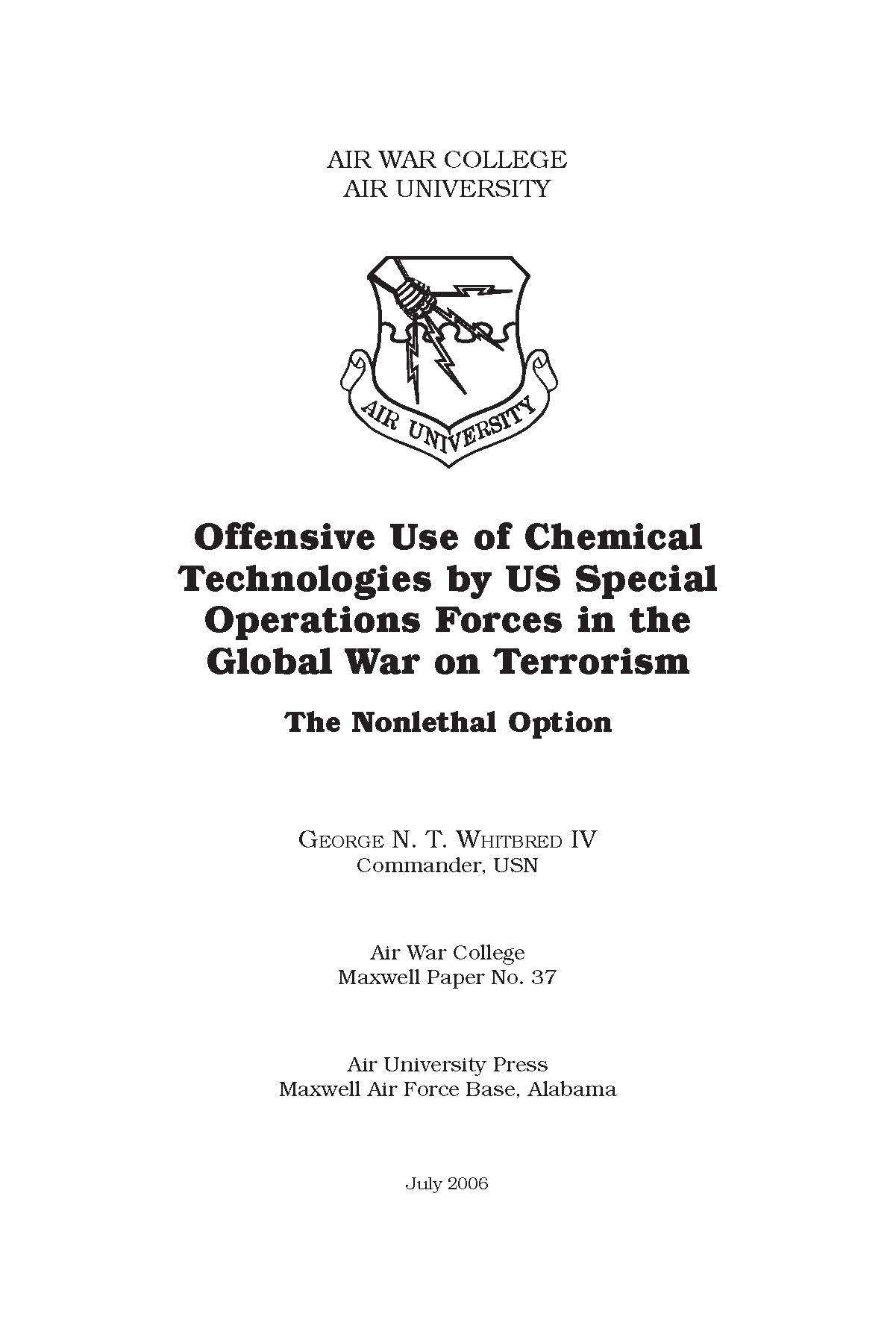 Counterterrorist operations in the twenty-first century will continue to rely on the combination of highly trained, exceptionally skilled special operations forces and the use of unconventional methods of warfare. Today, counterterrorist operators face a modern terrorist who neither follows constructs of conventional warfare nor is bound by accepted conventions, protocols, or rules of engagement. Anyone, anywhere, anytime is a target. Countering such actions will require the integration of conventional and unconventional approaches. The application of nonlethal chemical technologies offers a viable approach to today’s counterterrorist operations. In both the antipersonnel and antimaterial applications, advances in technology offer new dimensions in the methods of unconventional warfare. Commander Whitbred examines the applicability of nonlethal chemical technologies as they relate to unconventional global counterterrorist operations, as well as their strategic impacts in relation to the Chemical Weapons Convention’s restriction of the use of chemical warfare. Although nonlethal chemical technologies are designed to be employed at the tactical level, the results of their effects can become strategic in nature. He recommends that the development of these technologies will extend the range of options in the overall effectiveness of counterterrorist operations.
Counterterrorist operations in the twenty-first century will continue to rely on the combination of highly trained, exceptionally skilled special operations forces and the use of unconventional methods of warfare. Today, counterterrorist operators face a modern terrorist who neither follows constructs of conventional warfare nor is bound by accepted conventions, protocols, or rules of engagement. Anyone, anywhere, anytime is a target. Countering such actions will require the integration of conventional and unconventional approaches. The application of nonlethal chemical technologies offers a viable approach to today’s counterterrorist operations. In both the antipersonnel and antimaterial applications, advances in technology offer new dimensions in the methods of unconventional warfare. Commander Whitbred examines the applicability of nonlethal chemical technologies as they relate to unconventional global counterterrorist operations, as well as their strategic impacts in relation to the Chemical Weapons Convention’s restriction of the use of chemical warfare. Although nonlethal chemical technologies are designed to be employed at the tactical level, the results of their effects can become strategic in nature. He recommends that the development of these technologies will extend the range of options in the overall effectiveness of counterterrorist operations.
Author(s) • CMDR George N. T. Whitbred IV, USN
Year • 2006
Pages • 46
ISSN • 2575-7539
AU Press Code • MP-37